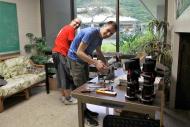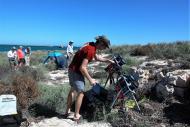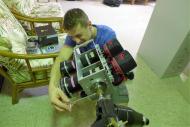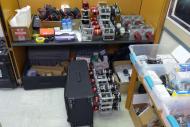People
Matěj Štarha's love of technology led him to a deserted island
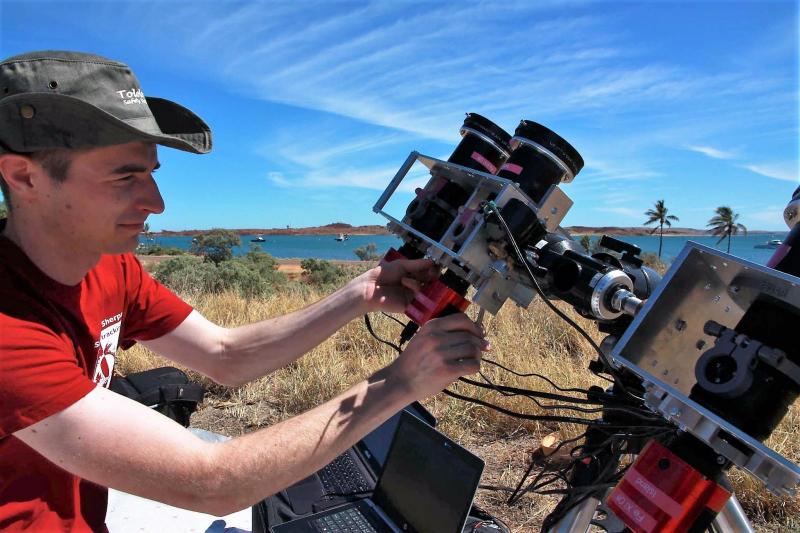
Matěj Štarha, a student of the Faculty of Mechanical Engineering, was among the people who travelled to see this year's solar eclipse in Australia. He was no newcomer to the expedition as he joined Solar Wind Sherpas, the international scientific team, for the second time.
Matěj's family is close to observing the eclipse. His uncle Pavel Štarha has been participating in expeditions for many years and is the author of some of the hardware parts and software that researchers use during observations. Matěj's father was also on the expedition in the past. Nevertheless, Matěj himself got a place in the expedition team three years ago somewhat by chance. "When the team members were planning a trip to Chile in 2020, they were looking for one more person at the last moment. At that time, there had not yet been vaccines against Covid-19 available and I had contracted Covid shortly before, so I had developed a certain immunity," Matěj Štarha recalls the invitation to the first expedition.
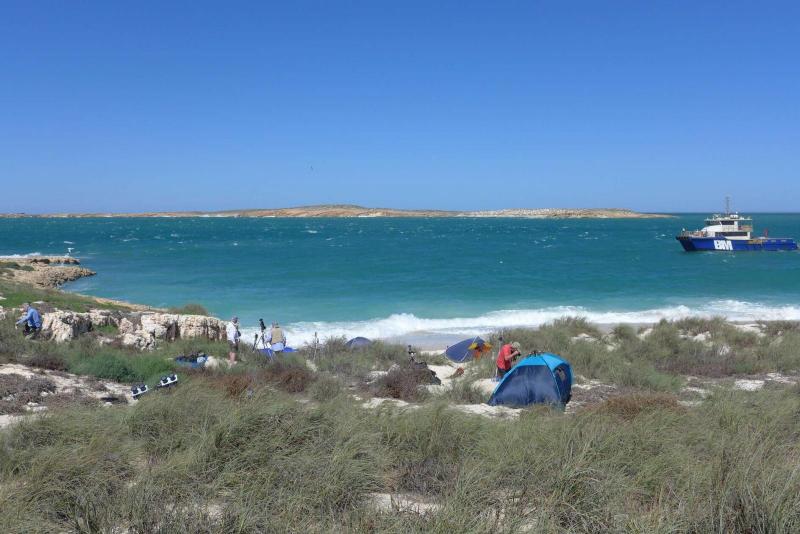
The whole expedition could be described as a "trip" in quotation marks. From a distance it looks tempting – just judge for yourself: Hawaii, Australia, cruise to a deserted island and back. According to Matěj, the reality of the research expedition is considerably less romantic. "In Hawaii, where we flew before the eclipse only to complete our equipment, it was really just about work, food and a bed. In Hawaii, I only saw the ocean in the dark. Jana Hoderová and I had about a day and a half off in Perth and then only after the eclipse," he confirms.
Even though the expeditions represent a small dream come true for him, seeing a unique phenomenon with his own eyes is not his primary motivation. "I personally wouldn't go as far as a tourist just to see an eclipse. What I enjoy most about the expedition is the technology, the fact that I can apply my experience and interest in technology and programming. And, I get to know another country and its culture," says Matěj, who is studying Mechatronics at FME in the fourth year. Even the resulting photos of Professor Druckmüller, thanks to which the scientific team gained the global fame and recognition within the professional community, are rather nice pictures for Matěj. "Paradoxically, I am not so much interested in the resulting photos as in the technology used to make them," adds Matěj with a smile.
He prepared for the expedition thoroughly, for example by trying out the software with cameras at home in the Czech Republic. And he was also in charge of some of the equipment. "I prepared most of the cabling and power supply for our site. I prepared everything in a limited setup so that we had as little equipment as possible to be transported to the island, but at the same time everything was backed up as much as possible. I managed to tackle this somehow and it looks like our mobile setup will be used in the future as well," adds Matěj. Even in this case, he could take over the service, the team has already "signed up" for the next expedition in 2024, when the so-called totalitarian belt is to hit Mexico, the USA and Canada on April 8. (ivu)
Optical fibres will help peek into the deepest parts of the brain. A doctoral student from FME is involved in the research
Bismuth as a cheaper alternative to gold
Petr Viewegh’s Microcosm and Macrocosm
Doctoral students in engineering study the behaviour of the circulatory system. Neural networks also help them
Alexandra Streďanská’s fascination with fascia and hyaluronic acid
